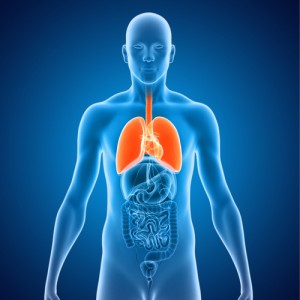 A new study entitled “Subtherapeutic ganciclovir (GCV) levels and GCV-resistant cytomegalovirus in lung transplant recipients” suggests lung transplant patients, particularly those with cystic fibrosis, should be closely monitored for lung infections with resistant cytomegalovirus, due to their increased association with subtherapeutic levels of antiviral ganciclovir drug. The study was published in an online ahead of print version of the journal Transplant Infectious Disease.
A new study entitled “Subtherapeutic ganciclovir (GCV) levels and GCV-resistant cytomegalovirus in lung transplant recipients” suggests lung transplant patients, particularly those with cystic fibrosis, should be closely monitored for lung infections with resistant cytomegalovirus, due to their increased association with subtherapeutic levels of antiviral ganciclovir drug. The study was published in an online ahead of print version of the journal Transplant Infectious Disease.
After lung transplantation, patients are more susceptible to infections and this associates with high rates of morbidity and mortality, namely infections by cytomegalovirus (CMV), which occur in 30 to 80 percent of lung transplanted recipients. An antiviral drug – ganciclovir – is administered to lung transplant patients as a treatment for CMV infection. While ganciclovir is capable of reducing CMV infection-induced deaths from 34% to 3–6%, a significant proportion of patients (5 to 10%) are infected with virus ganciclovir-resistant strains. In this study, the team of researchers at the Loyola University Medical Center aimed to determine whether the presence of subtherapeutic levels of ganciclovir in lung transplant patients contributes to CMV resistance to the drug and which conditions may contribute to this suboptimal response of CMV infection to the drug.
[adrotate group=”3″]
The authors performed a retrospective analysis in 51 patients submitted to lung transplant at the Loyola University Medical Center, from March 2007 through June 2008. Of the 51 participants, the authors identified CMV infection in 21 patients, 10 of which, or 47.6%, had an early and effective response to ganciclovir treatment. However, 11 patients (52.4%) exhibited a suboptimal response to ganciclovir, denoted by the delayed period of at least 14 days to see virus being eliminated and symptoms decrease. In fact, 5 patients had persistent subtherapeutic levels and were completely irresponsive to the drug. The authors confirmed these 5 patients carried ganciclovir-resistant viruses. Notably, 4 out of 5 of these unresponsive patients had cystic fibrosis, while in the group of patients that responded to the drug, the team of researchers found only 2 with cystic fibrosis.
Thus, the authors’ results suggest that cystic fibrosis patients that undergone lung transplantation are more susceptible to exhibit subtherapeutic levels of ganciclovir and, therefore, should be carefully monitored. This may be related to the fact that patients with cystic fibrosis suffer, among other features, of impaired absorption they are prone to clear drugs at faster rates.

